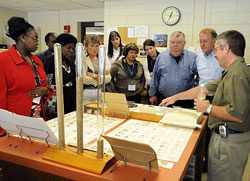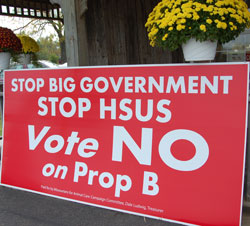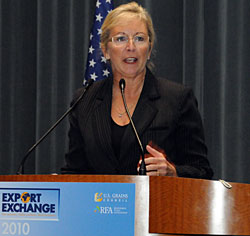 With a Hollywood theme this year, the NAFB President’s Banquet on
With a Hollywood theme this year, the NAFB President’s Banquet on Saturday Friday night will be a formal affair, according to convention coordinator and president-elect Lindsay Hill of ABN Radio Network. (Shows my age! Used to be on Saturday night…once upon a time…)
“While the general dress code for the convention is business casual, this year’s President Banquet will be a black-tie optional affair. Suits with jackets and tie are suggested for men, and cocktail dress for the ladies,” says Lindsay.
They have even arranged for a vendor for guys to order a tux for the event – Sir Knight Formal Wear in Kansas City. That’s where the photo comes from as an example of the many styles they have to offer. Sorry girls, it’s only the tuxedos for rent, not the hot guy in the photo!

 If you missed the 2010 World Dairy Expo, you missed a lot!
If you missed the 2010 World Dairy Expo, you missed a lot!







 Signs opposing a proposition on the Missouri ballot backed by the Humane Society of the United States (HSUS) are popping up all over the state with election day just around the corner.
Signs opposing a proposition on the Missouri ballot backed by the Humane Society of the United States (HSUS) are popping up all over the state with election day just around the corner.  In this week’s ZimmCast we’re going to take the pulse of
In this week’s ZimmCast we’re going to take the pulse of 

